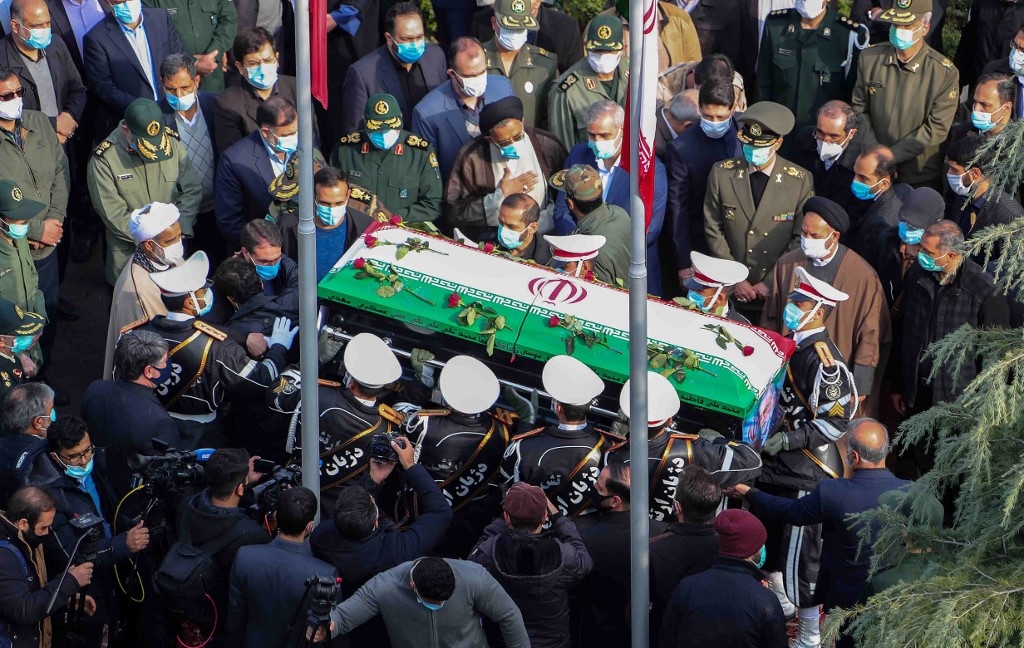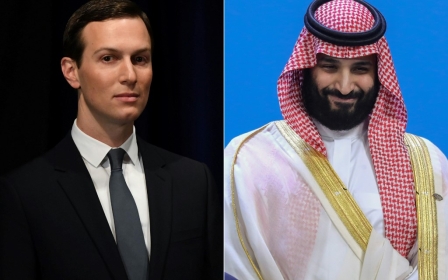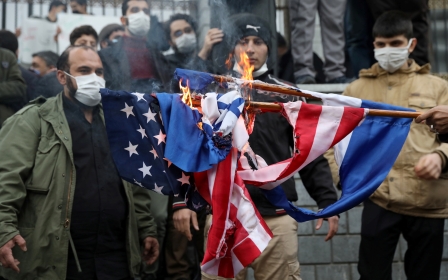Iran vows revenge against Israel during funeral of slain nuclear scientist

Iran held a state funeral on Monday for nuclear scientist Mohsen Fakhrizadeh, who was assassinated by gunmen on Friday, in an attack that Tehran is blaming on Israel.
Iran gave the status of "martyr" to Fakhrizadeh, while stating it would double its efforts to continue its nuclear programme.
Fakhrizadeh died after armed assailants targeted his car and engaged in a gunfight with his bodyguards, according to Iran's defence ministry.
High-ranking officials, including Defence Minister Amir Hatami and the head of the Revolutionary Guards, Hossein Salami, were pictured mourning the slain scientist at the funeral.
Photos from the funeral showed a picture of Fakhrizadeh next to a portrait of Iranian Supreme Leader Ayatollah Ali Khamenei and General Qassem Soleimani, who was killed in a US drone strike in Baghdad in January.
New MEE newsletter: Jerusalem Dispatch
Sign up to get the latest insights and analysis on Israel-Palestine, alongside Turkey Unpacked and other MEE newsletters
But unlike Soleimani's funeral, which was attended by thousands, Fakhrizadeh's funeral was not open to the public and held in private to respect social distancing rules because of the coronavirus.
The secretary of Iran's Supreme National Security Council, Rear-Admiral Ali Shamkhani, said Fakhrizadeh died in a "complex" operation, laying the blame for the attack on Israel.
Shamkhani claimed the People's Mujahideen of Iran (MEK) opposition group were "certainly" involved, along with the "Zionist regime and the Mossad" intelligence agency in Israel.
Iranian President Hassan Rouhani also accused Israel of acting as an American "mercenary" in the region and blamed the country for killing Fakhrizadeh.
Rouhani has emphasised that Iran will seek its revenge for the assassination in "due time" and not be rushed into a "trap".
The nuclear scientist's murder has led to high-ranking Iranian officials urging the government to boycott potential negotiations with the US after President Donald Trump leaves office in January.
Iran's parliament on Sunday demanded a halt to international inspections of nuclear sites in the country, a step that could prove a fatal blow to the nuclear deal the Islamic Republic agreed with world powers in 2015, and which Trump had pulled out from in 2018.
Middle East Eye delivers independent and unrivalled coverage and analysis of the Middle East, North Africa and beyond. To learn more about republishing this content and the associated fees, please fill out this form. More about MEE can be found here.




